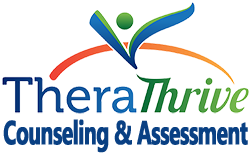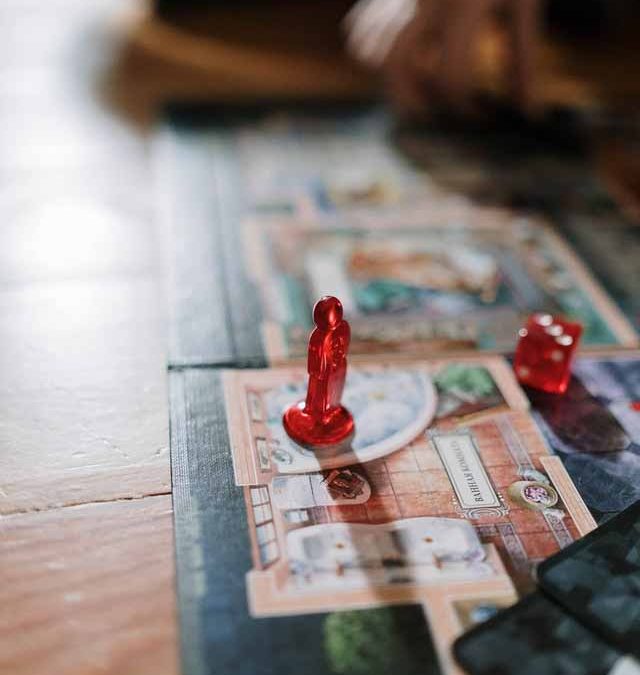Gaming Your Anxiety
Can stress be…. good, actually?
Anxiety is a powerful emotion. It can overwhelm, disrupt, and dysregulate—and can make the tasks of daily living really difficult. People with high anxiety often struggle to maintain social connections, navigate high-stress situations, and take risks in life. The fear of what could happen is overpowering, leaving people feeling stuck and afraid.
But stress isn’t always a negative force in life! Stress can motivate us to make important changes, put ourselves out there, or push ourselves to the next level. Most importantly, it can help us learn more about ourselves—what we want, what’s holding us back, and what we’re capable of when we really put our minds to it
When someone creates a sand tray scene, they are telling a story— and usually more than one story. The story may be a combination of the past, present and future. For example, it may be exploring a trauma that occurred long ago, while also processing how that story outcome can be changed.
What is healthy stress?
When it comes to stress, it’s important to know the difference between healthy and unhealthy stress. Unhealthy stress, or distress, makes engagement with life difficult—whereas healthy stress can increase engagement and even lead to feelings of motivation and excitement. Healthy stress is enlivening, whereas unhealthy stress leaves us feeling drained and demoralized.
Working through healthy stress is a powerful way of combating anxiety—and board games can be a fun way to encounter healthy stress in the therapy room.
Board games? Seriously? Seriously!!
Renowned game designer Jane McGonigal defines a game having four components: a goal, rules, a feedback system, and voluntary participation. For participation to be voluntary, all players must share an understanding of the other three components, and must willingly agree to play together.
Our therapists at TheraThrive often use board games to help clients move through anxiety. Negative stress comes when we aren’t invested in what’s happening around us, or didn’t consent to the dynamics we find ourselves in.
From a physiological standpoint, healthy stress occurs when a person knows: I’m safe, and I’m choosing this.
A major goal in therapy is to help individuals distinguish between healthy and unhealthy stress. Board games present players with the opportunity to willingly encounter stress, and choose how they want to engage with it. In the world of the game, failure doesn’t have the same consequences it has in everyday life. Players can push themselves to confront stress head-on—knowing that once the game is over, they can return to the safety of the therapy room.
Board games teach collaboration
Anxiety is an overwhelming emotion—but we don’t have to face it on our own!
While some board games are competitive, pitting players against each other, others are collaborative—empowering players to join forces against a common foe. In collaborative games, there are no winners or losers. Players are in it together, and must band together to use their skills to overcome external obstacles.
The Mind is a card game that helps build connection and rapport between players. The deck is made up of 100 cards, numbered 1-100. Each person gets a hand, and players must work together to lay down numbers in the correct sequence. But there’s a twist: players can’t openly communicate about their numbers! They must get through each round without speaking—or if they do speak, they must avoid using certain words or phrases.
The bond between therapist and client is strengthened when they agree on parameters around how to communicate. By identifying words that can and can’t be used, therapist and client develop their own secret language. They transform a simple numbers game into an elaborate communication game—and as both players learn to connect despite the obstacles, they are able to work as a team to win together.
Board games teach us to keep cool under pressure
The feeling of being under pressure is a huge trigger for many people living with anxiety—but games can teach us to be motivated by pressure, rather than overwhelmed by it.
In Forbidden Island, for example, players are faced with the task of finding treasure hidden below a sinking island. Each player takes on the role of a specific character on the island, and each has their own unique set of skills. Players must work together in a desperate race against time—and if any one player gets stranded, it’s game over.
As the island sinks faster and faster, players are challenged to face their anxiety. Yet Forbidden Island is a game that can’t be won alone. Players must rely on one another in order to beat the clock, developing a shared strategy to make it out alive. Because players work as a team rather than against one another, they experience healthy stress in a contained environment—where stakes are high but everyone is still having fun!
Join us!
Interested in challenging your anxiety? Schedule an intake with us here!
Board games give us insight into our own anxious patterns
Anxiety may be an unavoidable part of life for some of us—but that doesn’t mean we have to let it control us. By understanding our own patterns, we can begin to make little changes in how we respond to the stressors around us.
In both The Mind and Forbidden Island, exposure to healthy stress allows players to observe their own responses to the anxiety induced by the game. Having an experienced therapist present supports players in exploring these responses while still feeling emotionally held. The therapist can check in periodically, and ensure that the games are not inducing harmful distress.
Board games can help individuals with anxiety rely on others, understand their physical reactions to stress, and differentiate between what they can and can’t control. This knowledge goes a long way towards loosening anxiety’s grip over our lives.
This article was first created at TheraThrive, written by Grace Malonai, PhD, LPCC, BC-TMH




0 Comments